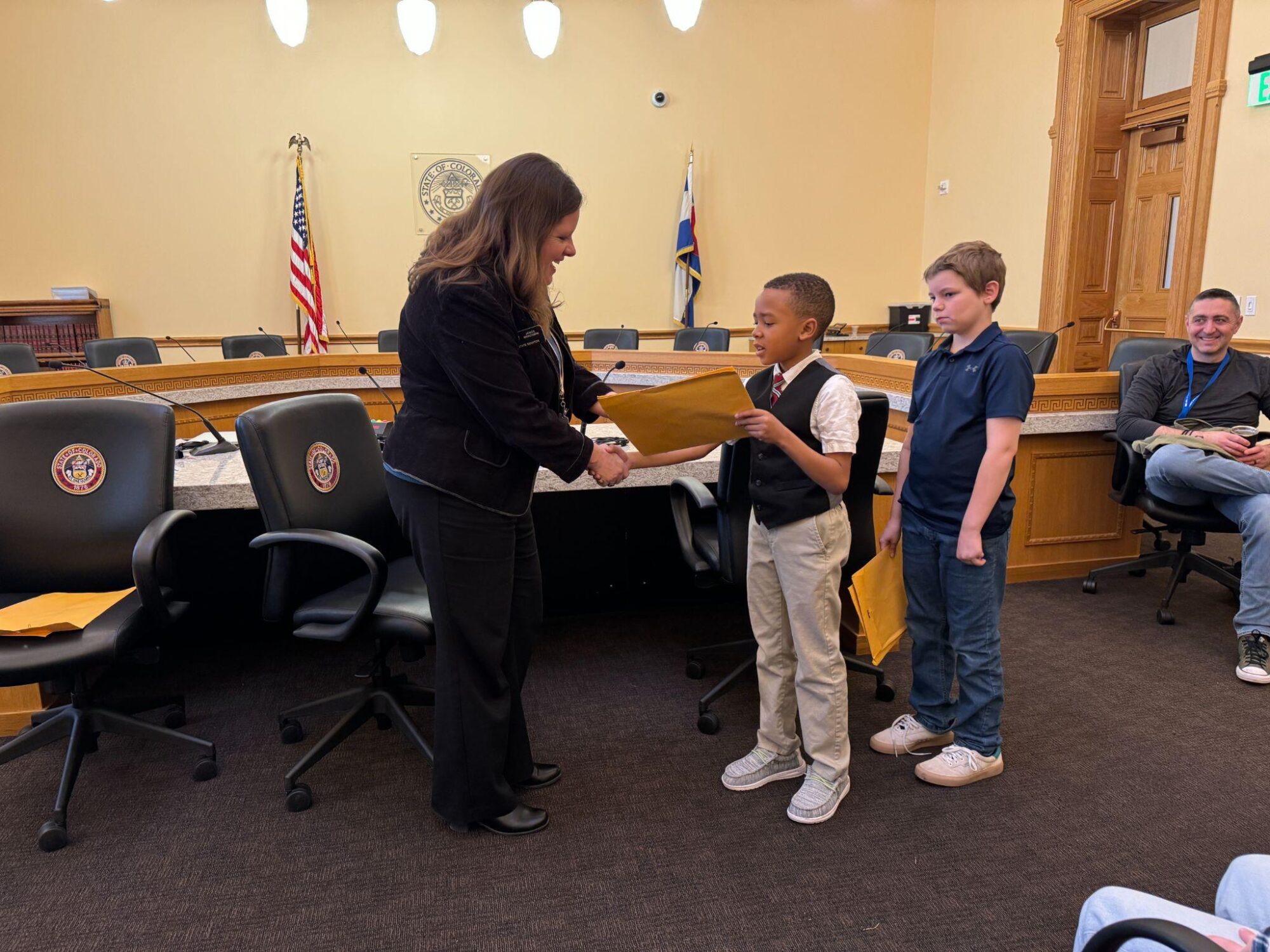
Senate Bill 65
Back in May, Colorado voters passed a new hands free driving bill. Senate bill 65 prohibits Colorado drivers from using and picking up their cellphone while driving. This includes calling, texting, or scrolling through social media while driving or at stoplights.
Under the new bill, the only acceptable use of cell phones in vehicles is with a hands free device.
Colorado fourth graders at High Plains K-8 school pitched in to help get the bill passed, as part of their mission to end distracted driving.
A call to action
High Plains in Loveland, Colorado, takes a hands-on approach to its students’ learning. As a STEAM institution, (Science, Technology, Engineering, Arts and Mathematics) the school focuses on problem based learning. Students are expected to apply their curriculum to real world problems, and to try and solve them.
This past spring, High Plains 4th graders set out to solve a huge problem in the modern world: distracted driving.
STEAM Coach Lindy Jones made the connection when looking at 4th grade physics standards, which detail inertia for objects and collisions.
Jones recalled being affected by the issue herself when a student from a school she formerly taught at was hit and killed by a distracted driver while riding her bike.
“Distracted driving has always been a problem,” she said.
End Distracted Driving’s Curriculum for children
Students began learning about distracted driving, and what it entails. Typically thought of as texting or calling on the phone; Jones stated, “There’s a lot more to it than that.”
For example, drinking, eating and singing along to the radio can all be forms of distracted driving.
“They learned how to in a responsible and appropriate way tell an adult prior to getting in the car and in the car how let’s be safe,” said Jones.
One of the methods presented by End Distracted Driving is called “SAM”. SAM teaches kids to first “see the problem” and identify what constitutes distracted driving in the first place. Then they are able to “address the problem with a statement”. By using “I feel” statements, kids learn to address adults who may be distracted driving in a more approachable way. That way they can “make an action plan together”.
Throughout being taught SAM, the fourth graders were asked to practice made up scenarios and asked how they would respond, with the goal to make them feel comfortable standing up for their safety.
The fourth graders modeled these distractions in gym class as well. While sitting on scooters, they were asked to “drive” through a maze of obstacles while performing different tasks.
In science, the students rolled marbles down runways to hit pieces of cork; measuring the distance moved based on size.
In addition, students heard from those directly affected by distracted drivers. Joel and Dianne Feldman of End Distracted Driving spoke to the kids about their journey, and the loss of their daughter Casey to a distracted driver back in 2009.
How a bill becomes a law
After the students’ practical education in distracted driving, it was time to take action.
High Plains teacher and Colorado State Senator, Janice Marchman taught the students about how a bill becomes a law and helped prep them to present their case to the Colorado State legislature.
All the students wrote letters to the governor urging him to consider the bill. As well as, two groups of the students who were selected to share their presentations at the state capitol in front of the senators on Feb, 9.
Jones recalled the students enthusiasm to be a part of the cause, remembering one student named Xander who gave his presentation at the capitol.
“When it’s all over and we’re leaving the conference room, he looks over and goes ‘this is a big deal’” said Jones remembering his sense of pride.
Even more impassioned after their capitol visit, the High Plains fourth graders went on to organize a pledge drive for the cause at their school. They distributed merchandise and hung posters of their making, racking up the donations.
In May, when the hands free driving bill passed, students cheered and celebrated in class.
“That sense of empowerment and how I can make change. It’s going to stick with them forever,” said Jones.
“I think anyone can make change. I don’t think age should even be a barrier,” Jones stated, “It’s really hard to get adults to change their ways. But if you start younger, and you get that in their thinking, you can get a greater reward out of that.”
Thank you to Honda Foundation for funding this initiative!





